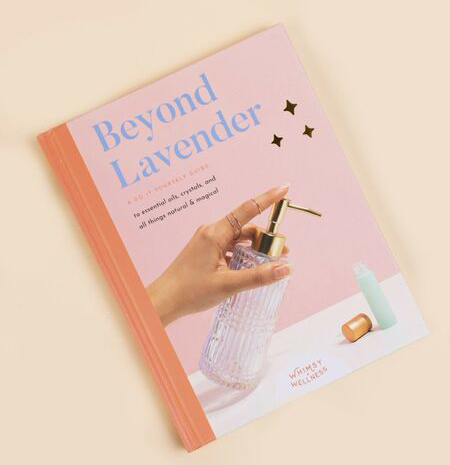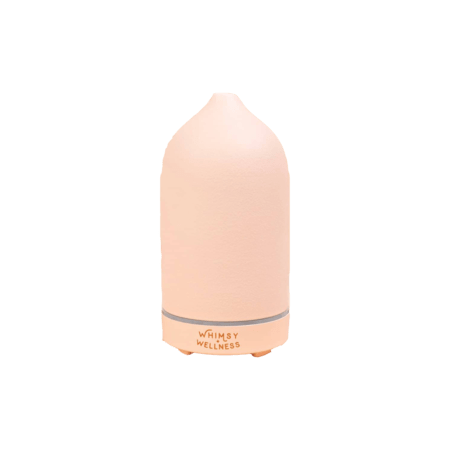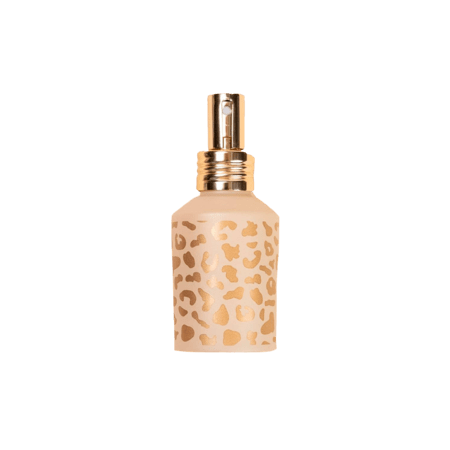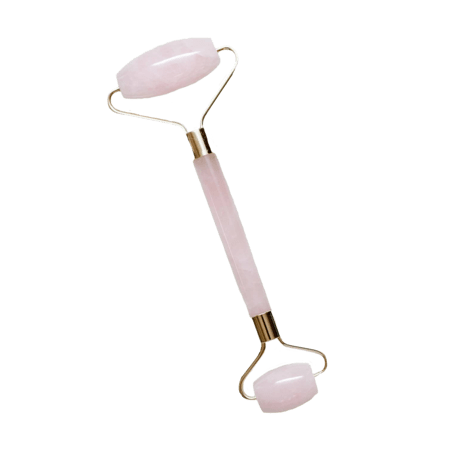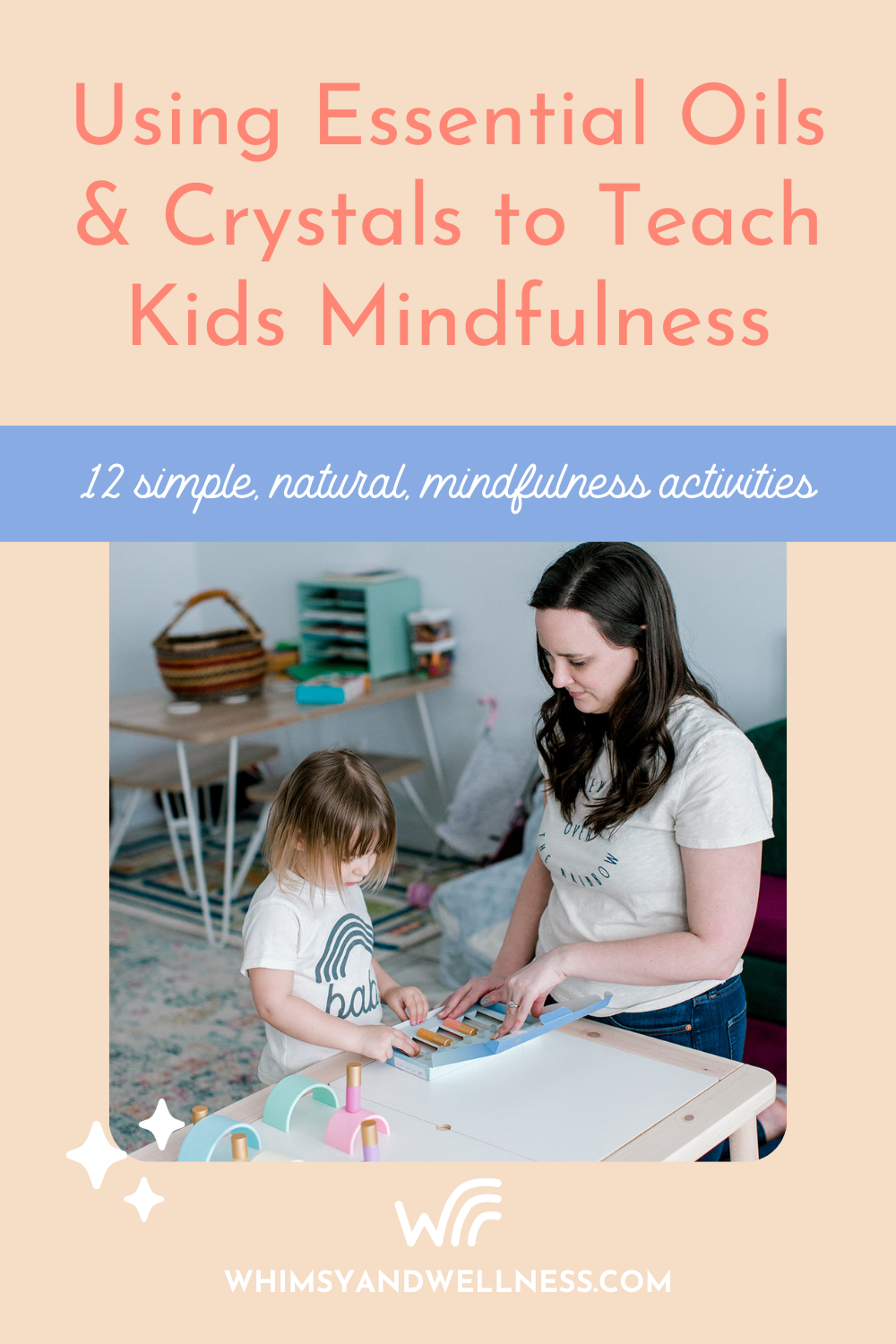
If you hear “mindfulness” and picture a monk in a zen pose on an isolated mountaintop… well, that’s not what we’re talking about today!
And if you hear “mindfulness” and picture perfect parents smiling gently at their kids all day… well, that’s not what we’re talking about, either!
Intro to Mindfulness with Kids
For us, mindfulness is about helping our own children (or the children we care for) by modeling and practicing being in the moment with a curious, non-judgmental heart. It’s about forgiveness and gentleness, and is the absolute opposite of shame.
Mindfulness is about open-hearted connection that also recognizes how important gentle and compassionate parenting is (for both parents and children).
But this article about mindfulness and kids is a little different, because we’re teaching you how to use essential oils and crystals to help children practice mindfulness.
Essential oils are very powerful wellness tools that have been scientifically proven to help with everything from anxiety to pain to sleep.
And crystals are natural, organic ways to both attract kids to the practice of mindfulness and give them a tactile way to experience it. In addition, many people also believe crystals, thanks to their unique atomic structures, have their own powerful healing abilities.
Combining essential oils and crystals with mindfulness = genius.
Table of Contents
- What is mindfulness for kids?
- How does mindfulness help kids?
- Why use aromatherapy with mindfulness?
- Myths about kids and aromatherapy
- 12 mindfulness activities for children (using crystals and essential oils)
- 3 mindfulness aromatherapy recipes for children
Whether you’re a teacher, a parent, or somebody else who works closely with kids, there’s going to be something for you in this article!
But first…
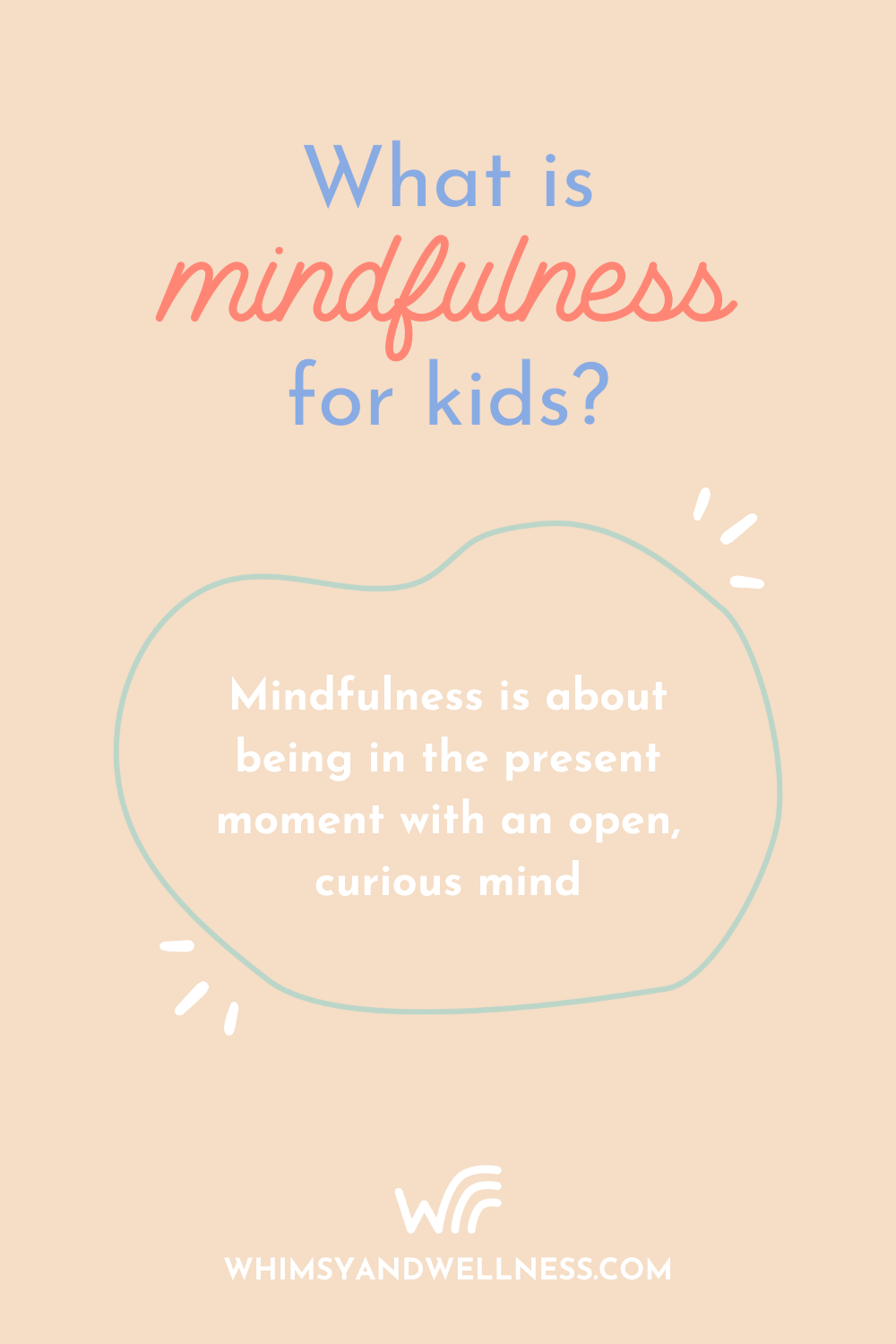
What is Mindfulness for Kids?
Mindfulness is about being in the present moment with an open, curious mind. No judgment. No “shoulds.” Just gentle observation and acceptance.
How Does Mindfulness Help Kids?
There’s a growing body of scientific evidence and anecdotal evidence that mindfulness benefits adults and kids in tremendous ways.
Here are a few ways:
- Kids’ prefrontal circuits develop rapidly while they’re young. Because mindfulness helps them learn skills that are controlled in this part of the brain, mindfulness seems to impact a child’s ability to self-regulate, make sound judgments, and be patient (source).
- Helping kids learn to stay in the moment can actually make them happier. This study found that while people spend about half of their time thinking about things in the past or the future, we’re actually the happiest when we’re focused on what’s going on right now.
- This study found that young elementary students saw improved executive functioning skills (like reasoning, problem-solving, and planning) when their daily class work included mindfulness activities.
Mindfulness can also help children with academic performance and conflict resolution, and help them deal constructively with stress, anxiety, and depression.
Why Use Aromatherapy With Mindfulness?
Essential oils and aromatherapy can have a powerful effect on children’s brains, and can calm children who are stressed, relieve their discomfort or pain, or help them sleep better.
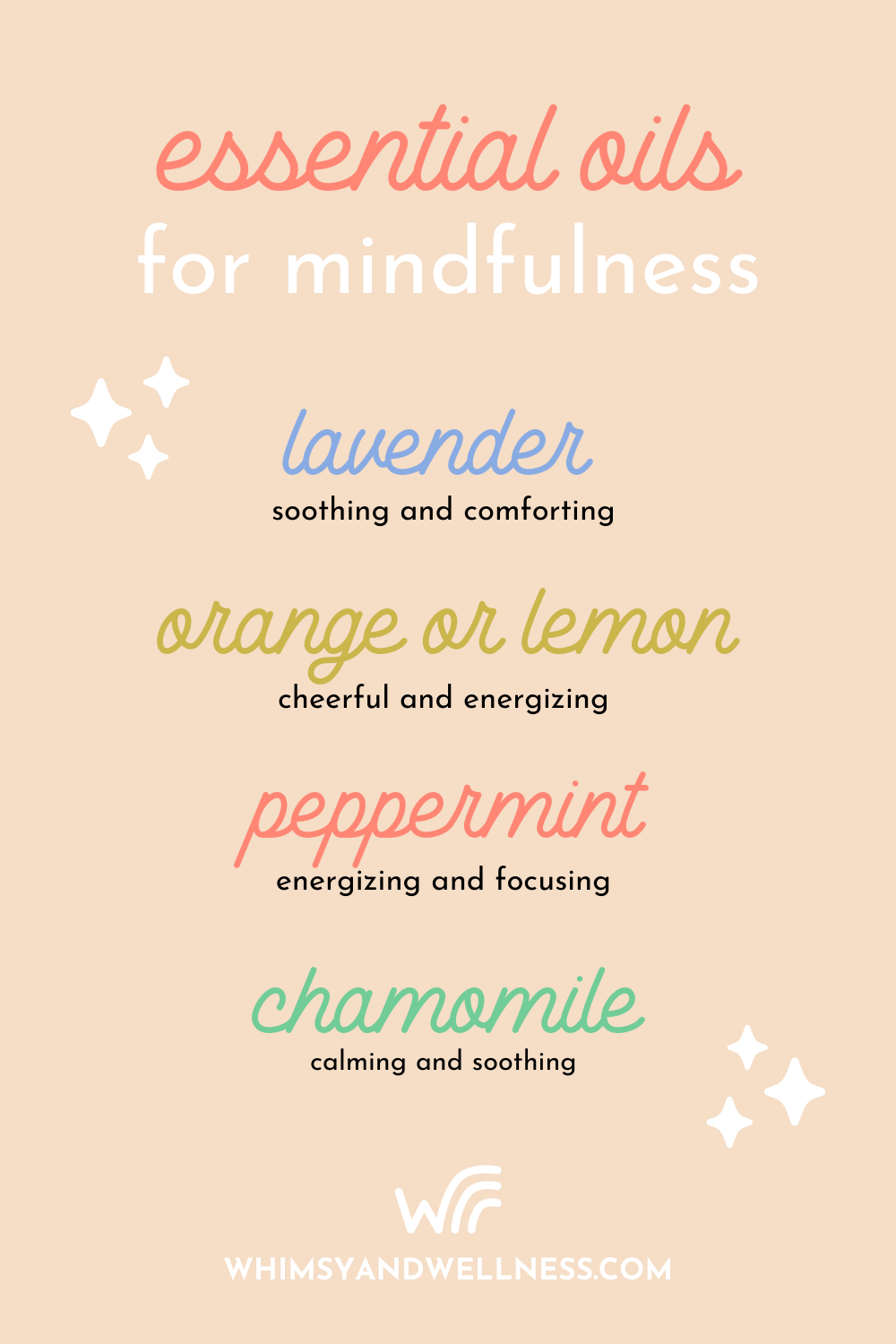
The oils most commonly considered safe for children are:
- Lavender (soothing and comforting)
- Orange or lemon (cheerful and energizing)
- Peppermint (energizing and focusing)
- Chamomile (calming and soothing)
You can diffuse these oils at a very low dose, or use them in a roller bottle (here’s how to make your own roller bottle). Keep in mind that with kids, less is more!
Myths About Kids & Mindfulness
1. Mindfulness is Something You can Teach (like cooking or driving a car)
This is a sort of good news/bad news thing because mindfulness isn’t something you can teach your kids. While there are lots of great books and shows and apps for teaching your kids about mindfulness, kids really learn to be mindful by watching us. Great.
But there’s good news, too!
Because mindfulness helps parents and caregivers as much as (or perhaps even more) than it helps kids, making mindfulness part of your family’s life or your classroom helps everybody.
And, now you don’t have to be an expert on mindfulness. You just have to be willing to try it out, yourself. And if you know kids, you know they’re way more interested in doing what you’re doing than trying to learn something you’re teaching them, amiright?!
2. Mindfulness is Something you Achieve
Nope. There’s no mountain top pinnacle and the goal isn’t an empty mind (like with some kinds of meditation, but not usually the kinds you do with kids).
A mindfulness practice is called practice for a reason. There’s no right or wrong, no failing or winning. We win when we try. It’s as simple as that!
3. Mindfulness is about Being Still
If you’ve got wiggly or hyperactive kids, you’re breathing a sigh of relief alongside me right now. Mindfulness can actually be more effective when it’s practiced through movement (something we’ll touch on later).
4. There’s Only One Way to Practice Mindfulness
There are so many amazing ways to practice mindfulness. Here are a few:
- Getting outside (or bringing the outdoors indoors)
- Moving your body
- Breathing
- Listening to music
- Smelling something delicious
- Holding or touching something beautiful
- Closing your eyes
- Just before bed, for a great night’s sleep!
Want to learn more about mindfulness activities for kids? Here are some great activities…
Mindfulness Activities for Children (using crystals and essential oils)
1. Five Things Mindfulness Activity (with printable)
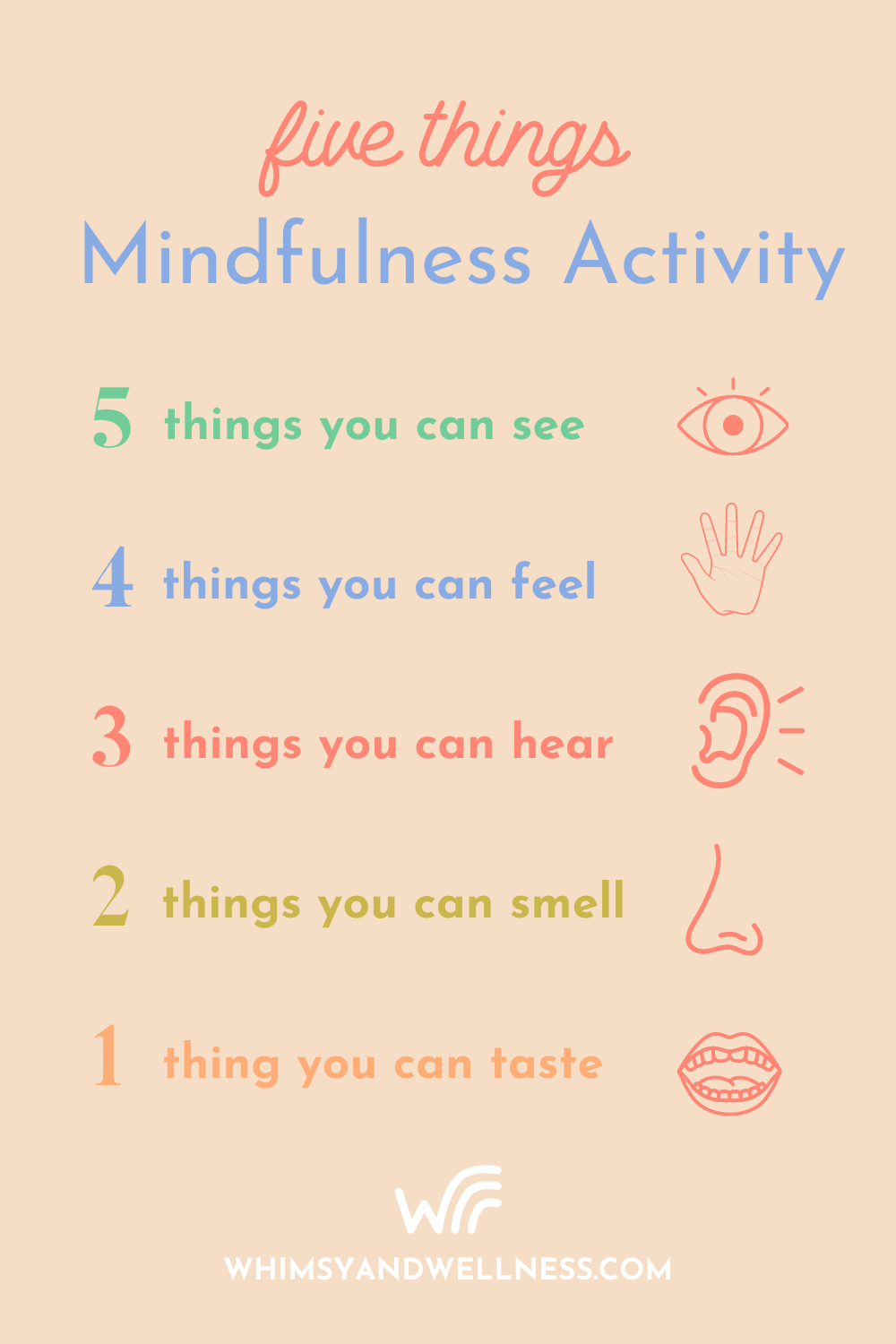
This is a classic and brings you right into the present so well! We love doing this with kids. Go ahead and diffuse an essential oil like tangerine or lavender so there’s something yummy to smell!
2. Take a Walk (or play, or have a snack…)
The thing about mindfulness is that it can happen anywhere, anytime. The point is to be present, and to notice what you’re doing, how you’re feeling, and what’s going on around you.
Try taking a walk, and walking about what you hear and feel. The more you listen and feel, the more you’ll start noticing!
You can also eat a snack or meal mindfully, chewing each bite carefully and thinking about how it tastes and feels in your mouth.
Playing or making art can also be a mindful activity. Instead of rushing to finish the artwork, for example, enjoy the process. What does the paint feel like on my fingers?
3. Crystal Observation
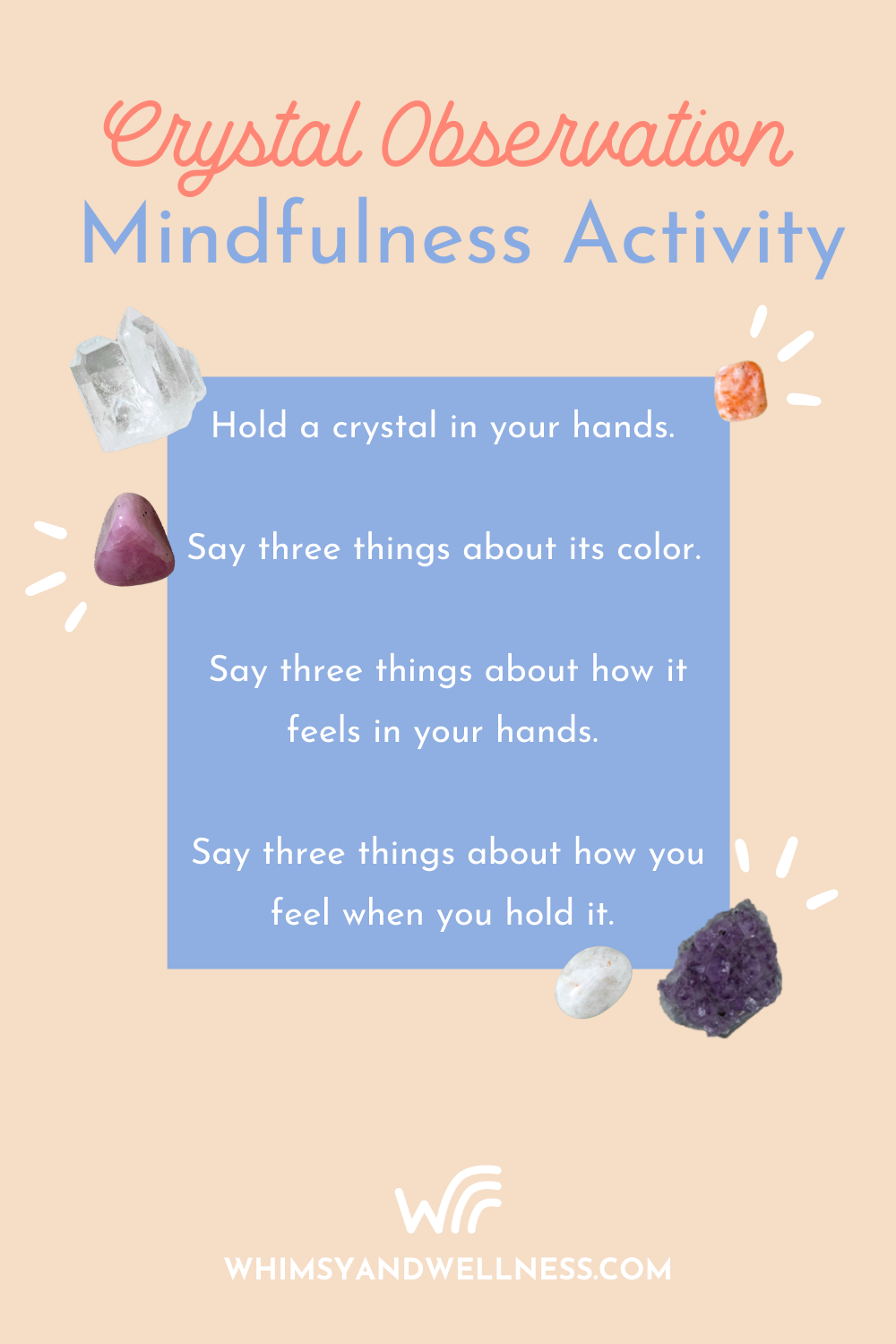
Look at a crystal and say three things about its color.
Now, hold your crystal and say three things about how it feels in your hands.
Next, think about yourself. Say three things about how you feel when you hold the crystal.
Imagine the crystal around you. Is it protecting you? Making you laugh? Making you feel safe or happy or light?
4. Listen to a Guided Meditation
There are so many great guided meditations and guided breathwork activities for children of all ages.
We love to play these while we diffuse essential oils or roll them on the inside of our wrists; your children can also hold crystals during the meditation (especially helpful if they have trouble sitting still).
And here are a few more of our favorites:
5. Deep Breathing Tracing (with printable)
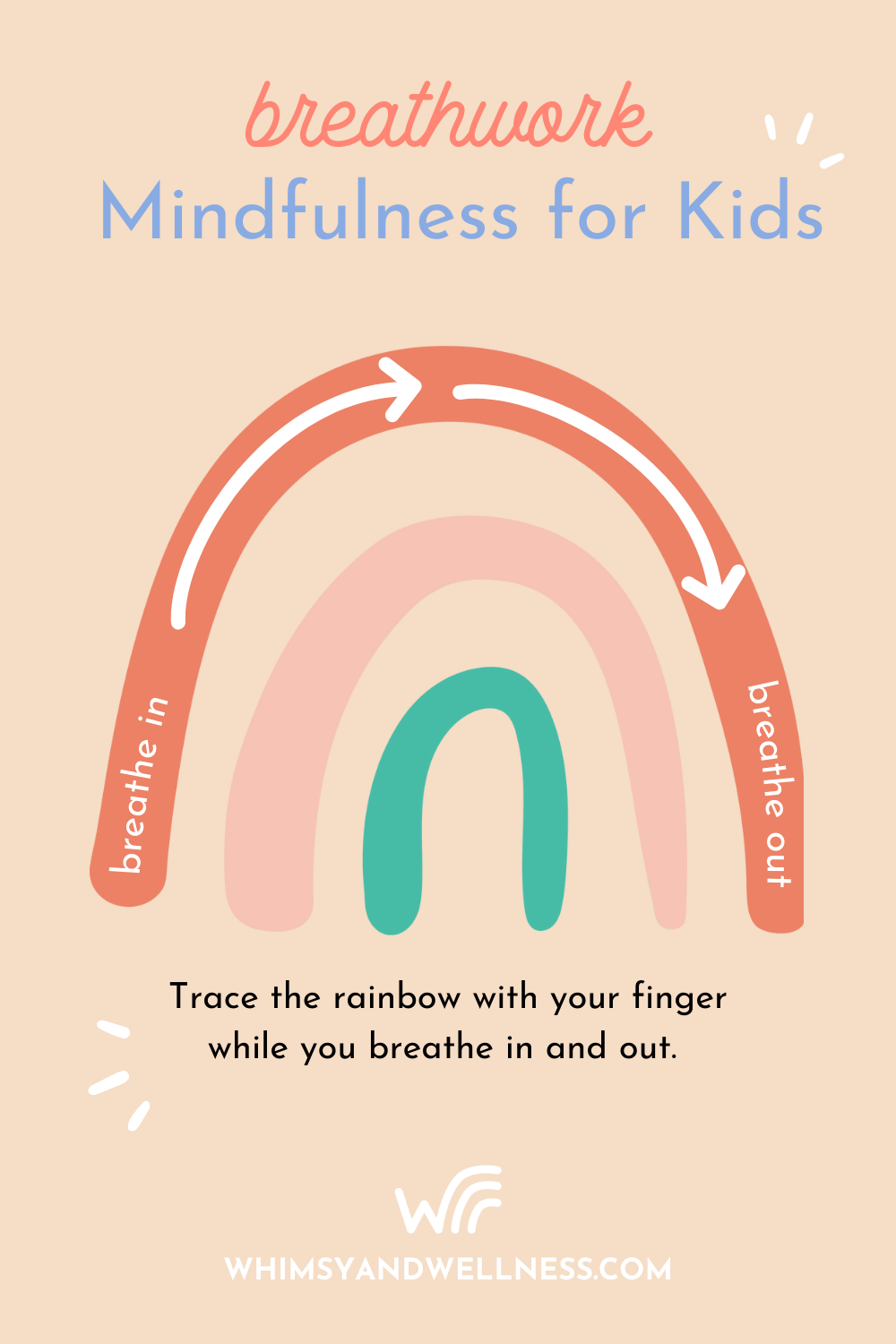
Deep breathing is a really powerful exercise, because it’s something we can all do when we get stressed or worried. Deep breathing tells our bodies: it’s ok. We can calm down now.
You can practice taking deep breaths in and out while you count to five, or you can trace the patterns in this printable.
6. Crystal Mindfulness Bingo (with printable)
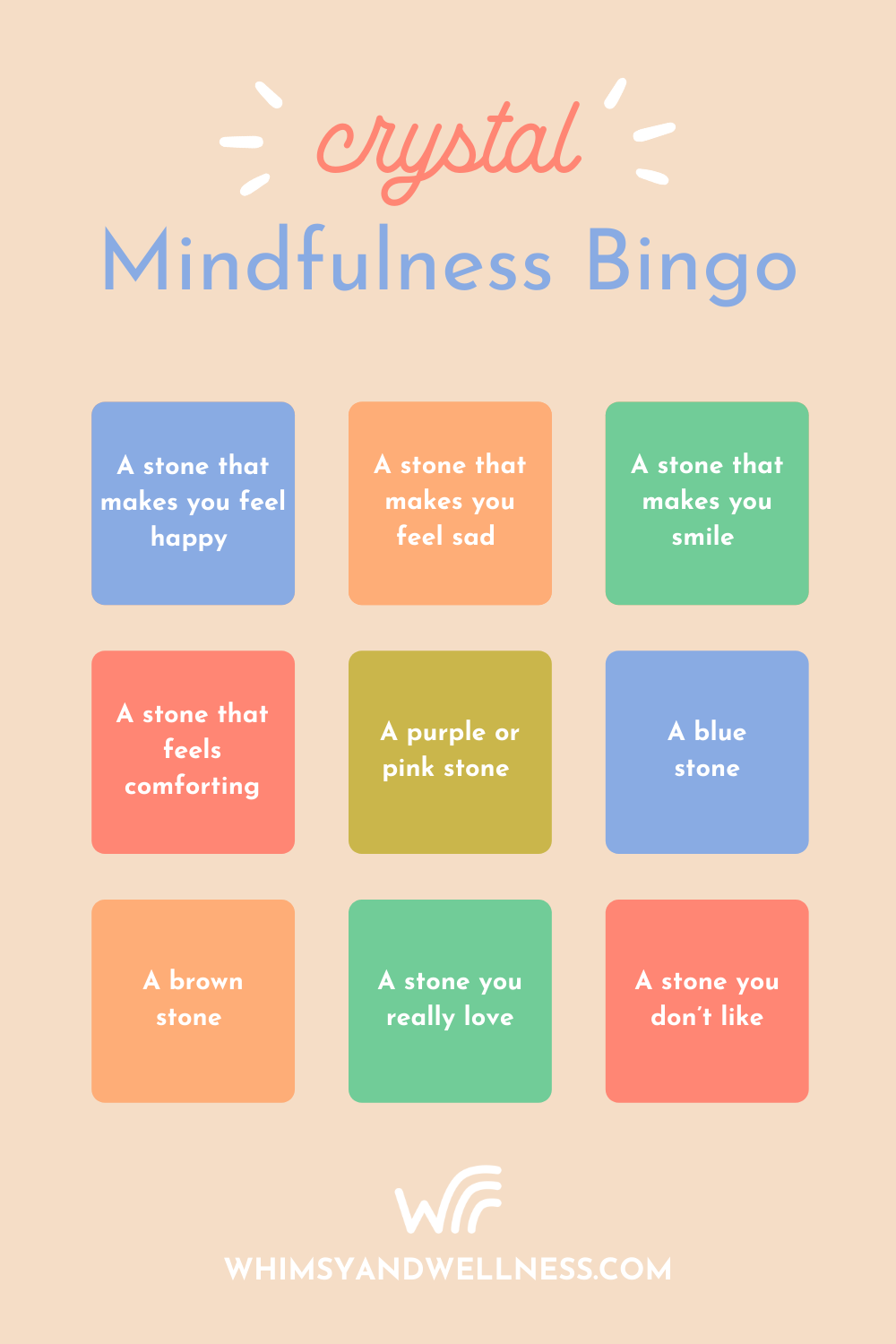
Find a stone, crystal, or rock for each bingo spot. This is a fun way to practice observing the world around you and the world inside you!
7. Mindfulness Bingo (printable)
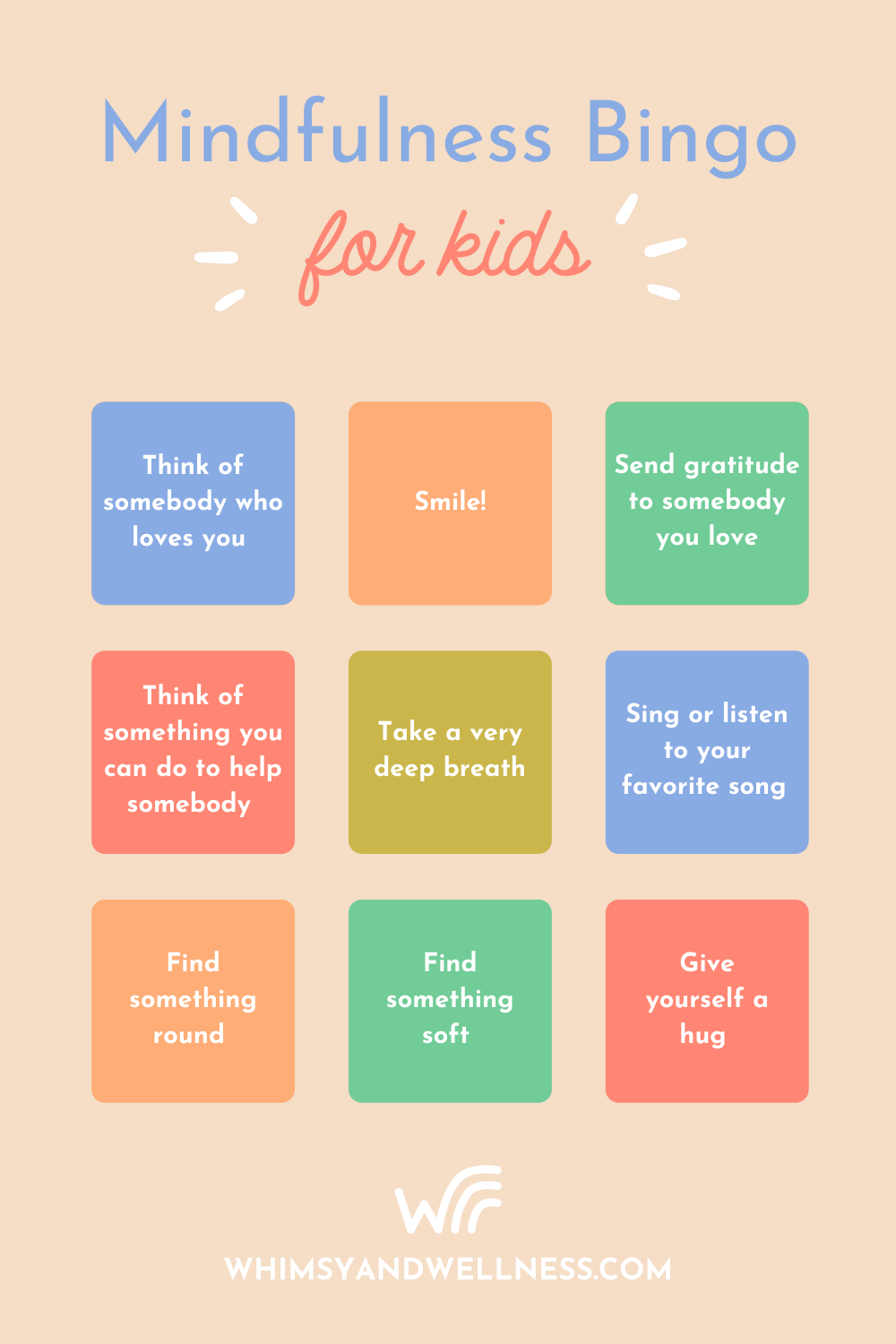
Another really great mindfulness bingo activity! The point is the observation: what’s going on around me, and what’s going on inside of me?
8. Breathing With Mantras (adapted from Metro YMCA)(with printable)
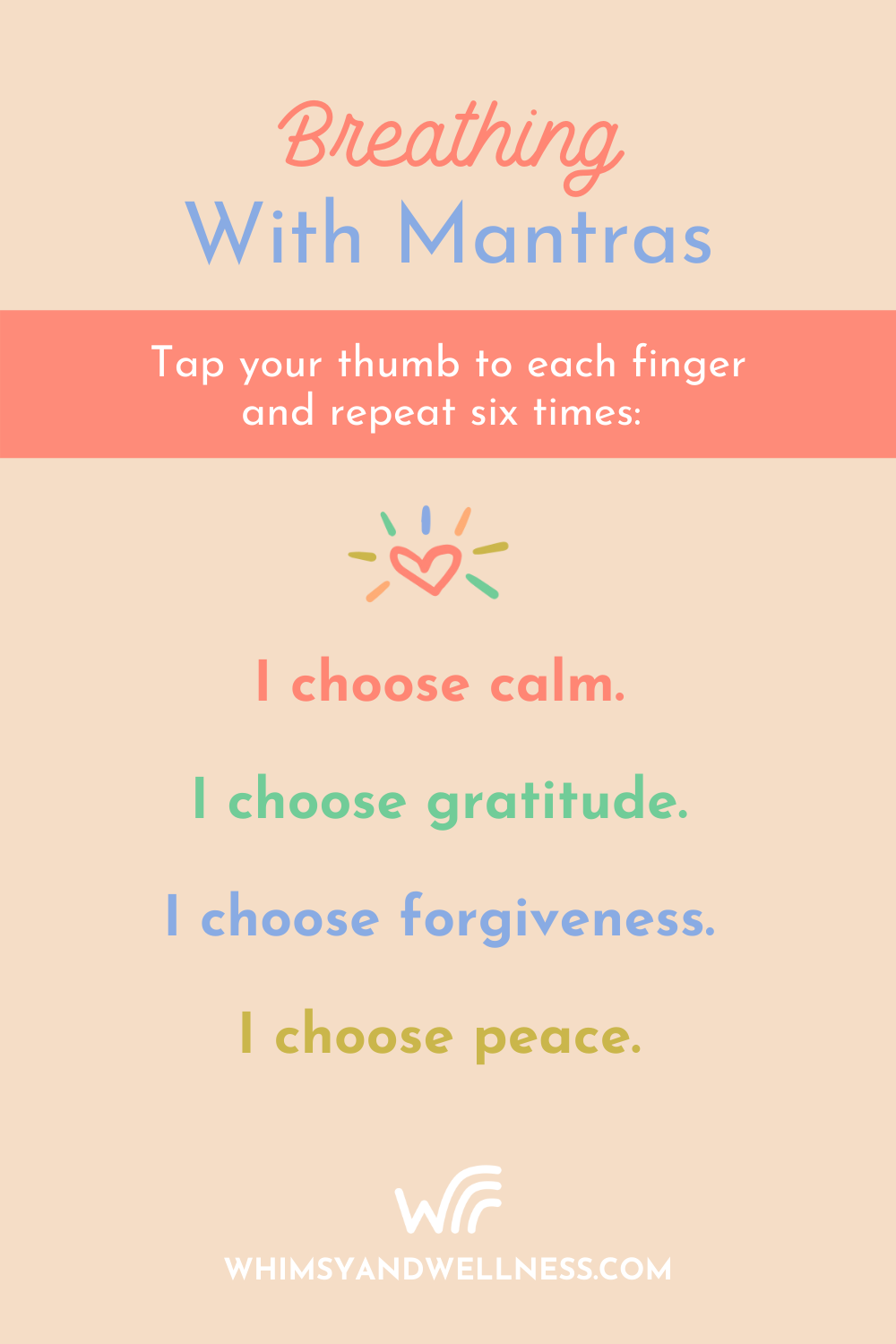
Children can combine powerful self-affirmations with breathing exercise. Show them they can use it any time they feel stressed or frustrated or angry.
Tap your thumb to each finger and repeat six times:
I choose calm.
I choose gratitude.
I choose forgiveness.
I choose peace.
9. Three Good Things With Gemstones (adapted from Susan Kaiser Greenland at Mindful)
You can do this without gemstones, but the crystals make it a lot more fun! You’ll need four gemstones: a dark one like tourmaline or black onyx, and three lighter stones like amethyst, citrine, and rose quartz.
Let kids hold this stone while they share about a time they’ve been disappointed. Acknowledge and affirm their feelings without judgement or shame. Invite them to let their anger, sadness, or pain flow from their hearts into the stone.
Now use the lighter, more colorful stones. Children can choose their own, and then choose a gratitude or good thing for each stone. Invite children to close their eyes and hold their stone tightly while they send out thoughts of love or gratitude.
Some kids take a little extra prompting and reminding that you can feel two things at the same time (just like you can hold multiple crystals all at once).
You can also practice this exercise with oils: choose three gentle, happy essential oils (like lavender, chamomile, lemon, or other citrus oil). Place one drop in your hands, rub your hands together, and inhale deeply while thinking of one good thing or gratitude. Repeat twice more, with your other drops of oil.
10. Yoga
Yoga is such a great mindfulness practice, whether you’re a child or an adult! Here’s a great ten-minute routine to try:
11. Sensory Playdough
Playdough is SO fun, and perfect for kids who need extra tactile or sensory stimulation. You can add a few drops of essential oil to already-made play dough and knead it in, or try making your own (the kids can help too). Here’s a great recipe for essential oil playdough.
12. Worry Stones
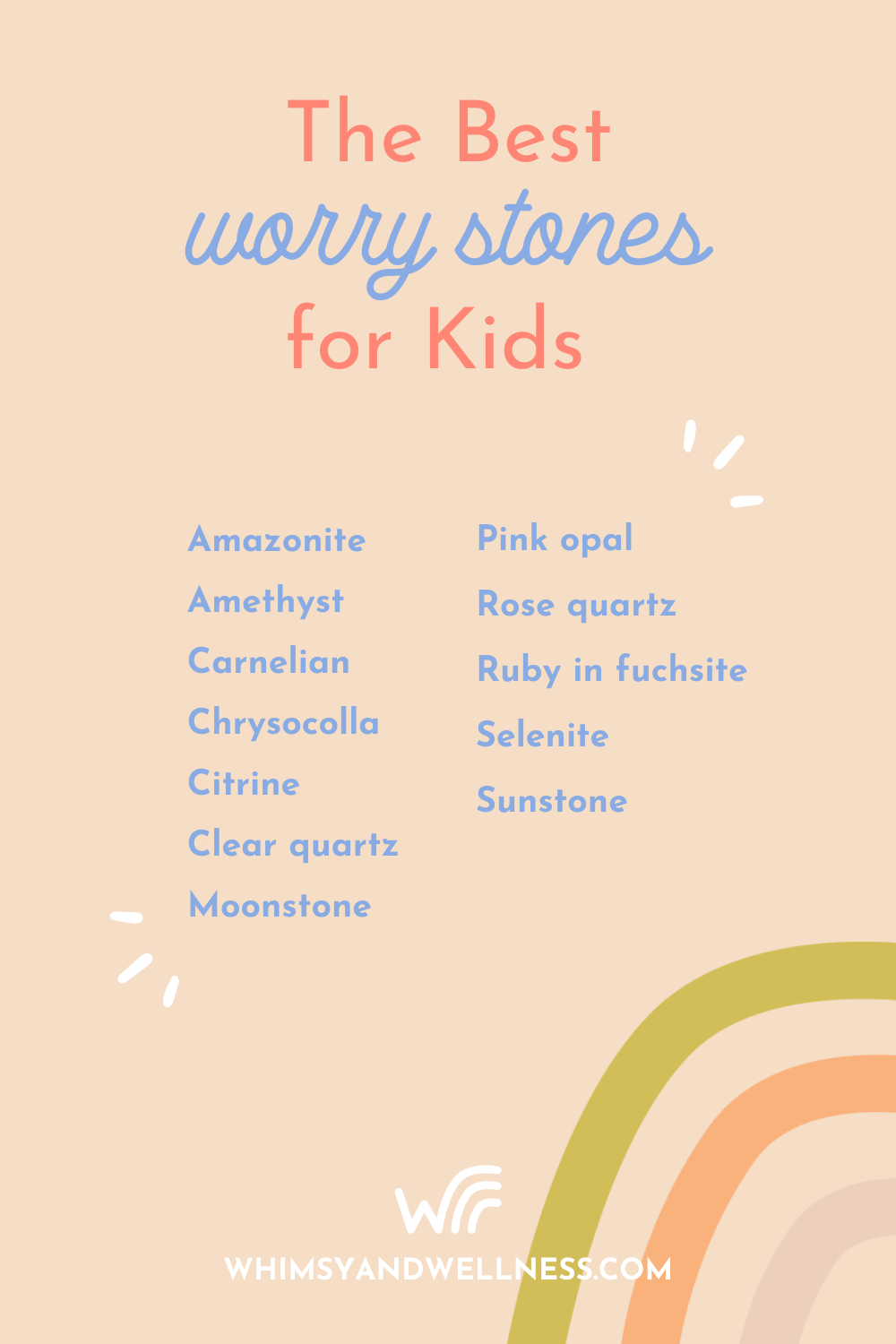
Worry stones are small rocks or crystals. They are usually smooth and have an indentation in them for your thumb, but they can be any size! There’s some evidence that suggests worry stones have been in use since ancient times.
The truth is, we feel better when we’re holding something. It’s almost like transferring your worry or negative energy away from you, into the stone, and can be a great mindfulness activity for kids.
Help your child choose a specific worry stone (pocket stones work great), and then allow them to keep it nearby so they can reach for it whenever they need to. They can picture the stone comforting them or giving them strength, or they can use the stone to remind them that they are loved.
Some of our favorite crystals to use as worry stones are:
- Amazonite
- Amethyst
- Carnelian
- Chrysocolla
- Citrine
- Clear quartz
- Moonstone
- Pink opal
- Rose quartz
- Ruby in fuchsite
- Selenite
- Sunstone
Mindfulness Aromatherapy Recipes for Kids
Mindful Focus Roller Recipe for Kids (from here)

This blend is great for kids who need a little extra help focusing!
- 10 drops frankincense
- 10 drops cedarwood
- 10 drops lemon or grapefruit
Add to a 10ml roller bottle and top with a carrier oil, like fractionated coconut oil.
Mindful Sleep Roller Recipe for Kids (from here)
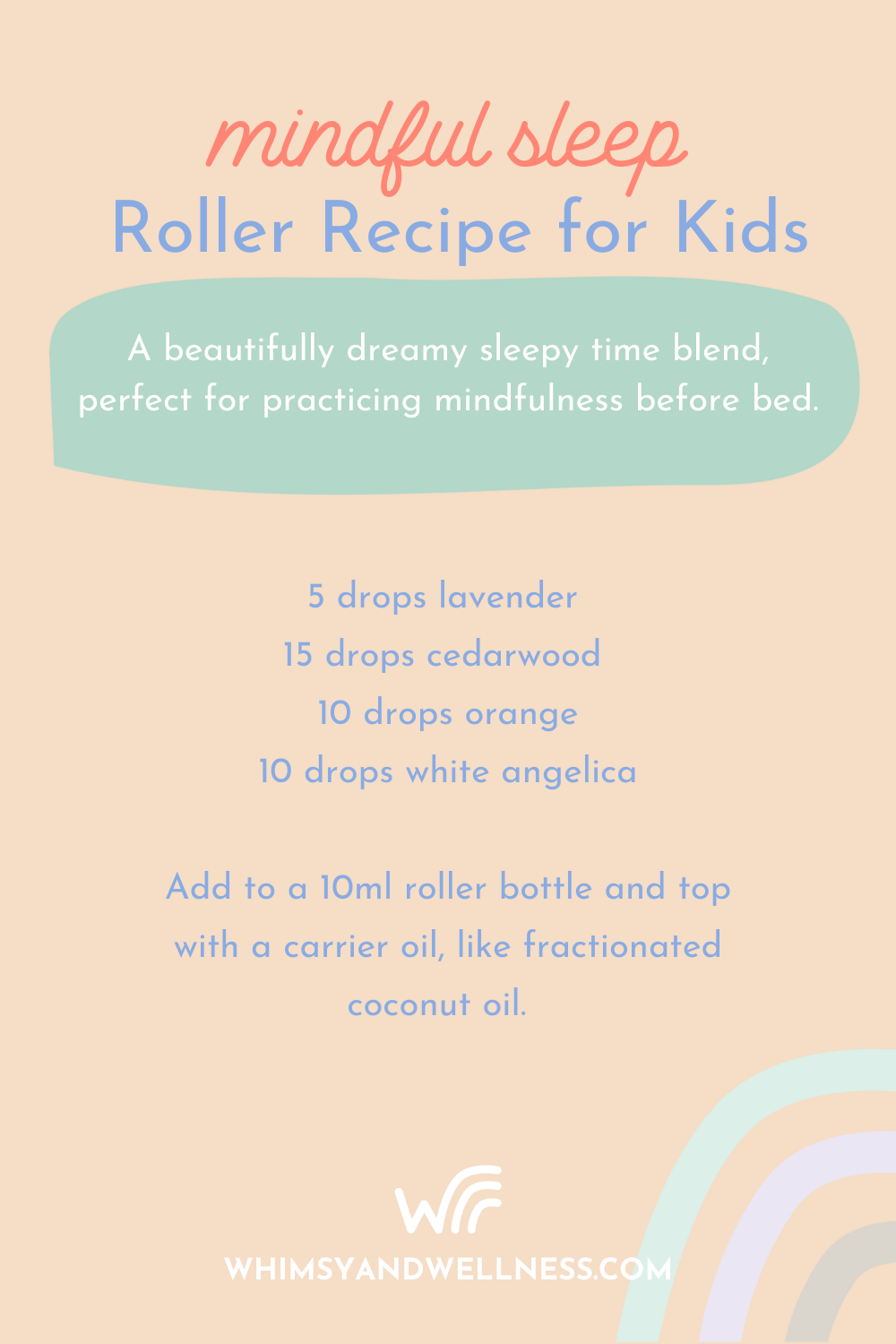
A beautifully dreamy sleepy time blend, perfect for practicing mindfulness before bed.
- 5 drops lavender
- 15 drops cedarwood
- 10 drops orange
- 10 drops white angelica
Add to a 10ml roller bottle and top with a carrier oil, like fractionated coconut oil.
Mindfulness for Kids Diffuser Recipe

Lavender = soothing and calming and citrus = happy.
- 3 drops lavender
- 2 drops orange or tangerine
Add five drops of oil to your diffuser per 100ml of water. Top with water, and diffuse!






